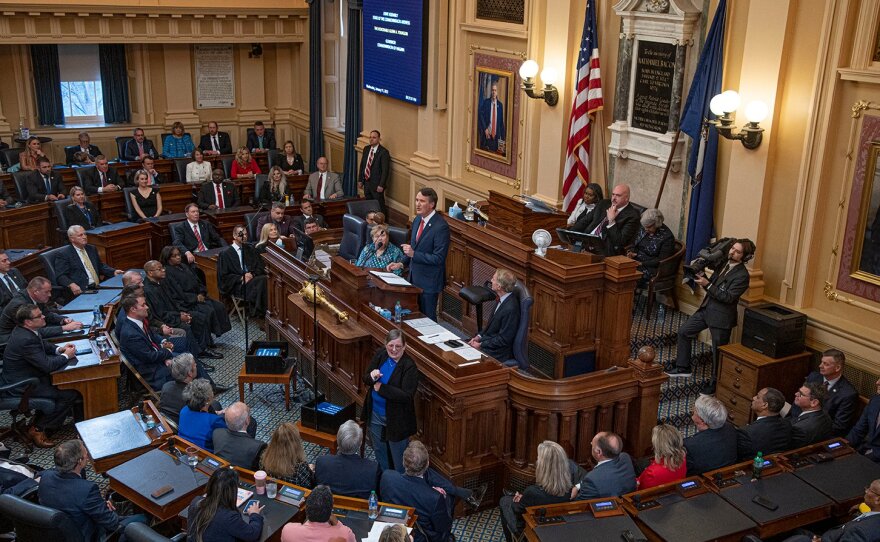Members of Virginia’s General Assembly have had a list of state budget recommendations from Gov. Glenn Youngkin, but lawmakers remain at odds on how to best utilize the Commonwealth’s more than $3.5 billion surplus.
When Youngkin first introduced his budget proposal, he called for $1 billion in tax cuts for residents and businesses, including a reduction of the corporate income tax rate from 6% to 5%.
The Republican-controlled House of Delegates approved a budget bill that aligns with the governor’s proposed amendments, while the majority-Democrat Senate remains opposed to the governor's long-term tax cut strategy.
A spokesperson for Youngkin’s office said the governor put forth a balanced budget proposal that utilized the $3.6 billion to invest in education, law enforcement, behavioral health and provide Virginians with necessary tax relief.
“Yet, the Senate Democrats stalled the budget process for political posturing at the expense of Virginians and have left critical items in the balance,” the statement read.
As a compromise, the Virginia Senate floated the idea of a one-time tax rebate — lower than $1 billion — for individuals and corporations, according to Sen. Creigh Deeds (D–Charlottesville), a member of the Senate Finance and Appropriations Committee.
“We’ve got to come up with a compromise,” Deeds told VPM News. “Government agencies that rely on state funding need us to do something about the budget. They need it now, they needed it two months ago, but we couldn’t get it done.”
In an email to constituents, Deeds outlined a number of discussions held by members of the House and Senate in order to iron out their differences.
The two legislative caucuses met as recently as Monday for back-and-forth discussions on tax cuts. The Senate proposed compromising the governor’s long-term tax cut with a one-time, $670 million cut. That proposal was rejected by the House, according to Deeds.
The Senate then proposed a one-time tax cut of $890 million, which Deeds said the House also rejected.
“So far, we've not been able to get past that initial hurdle,” Deeds told VPM News. “The Senate’s priority has been to invest in higher education, to bring down the cost of tuition and to build up our resources within our mental health. The house has different priorities.”
Republican Del. Buddy Fowler — vice chairperson of the House Finance Committee — told VPM News both chambers would be closer to a compromise had they’d overcome what he views as a fundamental difference.
“Over in the House, we kind of thought we had a deal in principle on the framework of a budget a week or two ago. Now, all that’s changed,” Fowler said. “Folks in the Senate keep kind of moving the goalpost.”
This breakdown in negotiations leaves the commonwealth in an almost unprecedented position. Virginia has a two-year budget process where the governor proposes a budget for the upcoming two fiscal years in even-numbered years and amendments to the current two-year budget in odd years.
In December, Youngkin proposed an amended two-year budget that covered spending from July 1, 2022 to June 30, 2024.
So, while Virginia is generally able to operate on what lawmakers commonly refer to as the state’s “skinny budget,” public bodies expecting money from the state — including local governments — are currently unable to fully fund or make decisions for the future.
“I will say this is not unusual,” Fowler said. “This happens often [in] past General Assembly [sessions], so I think the smart thing to do is just be patient. I think at the end of day, I think cool minds will prevail and the House and Senate will do their job.”
Moving forward, Fowler said he suspects a deal could be struck during a special session, which the governor would need to call.
“I’m confident we can have a proactive discussion and focus on the priorities of the commonwealth,” Deeds said. “We were eager to strike a deal on the amendments, and I’m confident we can do that in the next several weeks.”
When asked about the special session, Youngkin’s spokesperson said the governor is ”currently evaluating next steps.”



